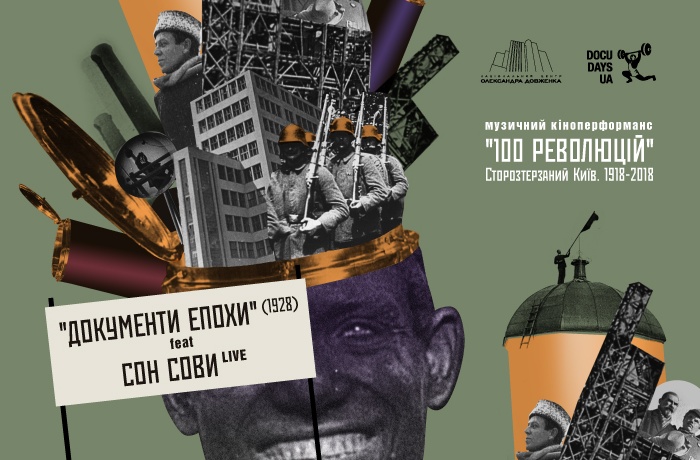
This year, Docudays UA has prepared another surprise. Instead of the traditional screening of the film which won the festival competition at the closing ceremony, we invite you to the musical film performance from Dovzhenko Center. The sensational film discovery Documents of the Epoch combines unique footage of Kyiv and Odesa of the early 20th century with film chronicles of Ukrainian history from the World War I until the late 1920s.
The movie was created by the disgraced Ukrainian director Leonid Mogilevsky, better known as Leonid Mogi, a representative of the French avant-garde cinema of the 1930s, whose work was the inspiration for Quentin Tarantino. Until recently, Mogi’s films from the Soviet period were considered lost. The fact that one of them was found, without exaggeration, is a cinematic event.
"Documents of the era" is the most well-known installation video by VUFKU, created on the basis of 40,000 meters of chronicles from the years 1917-1922. Leonid Mogilevsky has based his film on the ideologically outdated archival material (“pieces of positive” and pre-revolutionary "rubbish"), which was either preserved in the archives of the film studios of VUFKU (All-Ukrainian Photo Cinema Administration) or redeemed from other film organizations and private individuals.
Despite the fact that the chronicle in the film is passed through a sieve of ideologized intertitles that sometimes correct and sometimes falsify historical events, “Documents of the era” remain an unprecedented and extremely valuable visual evidence of the most dramatic pages of Ukrainian history of the twentieth century. German von Eicchorn, the commander of the German troops, is walking the Kyiv railway station shortly before his assassination, Hetman Pavlo Skoropadsky sets a generous table for his allies, Volodymyr Vynnychenko and Simon Petliura freeze in the January frost near the St. Sophia Cathedral...
The return of the “Documents of the Era” movie into the cultural field is an attempt to initiate a discussion about falsification of history during Soviet times and its contemporary rethinking, particularly against the background of sometimes chaotic and devastating processes of decommunization.
A soundtrack from the “Owl’s Dream” band will help to take a closer look at the mechanism of working with meanings in the film “Documents of the era”. This mini-orchestra consisting of the keyboard (Kyrylo Tsukanov), cello (Yevheniya Smolyaninova) and saxophone (Mykhailo Sarana) puts new accents in the film through a mixture of academic music, jazz, and electro.
The festival closing ceremony will take place on March 29 at 7 p.m. Entry to the closing ceremony is by invitation only. On March 30, on the festival’s audience day, Dovzhenko Center also invites you to the musical film performance Documents of the Epoch. You can already buy tickets to it at this link.